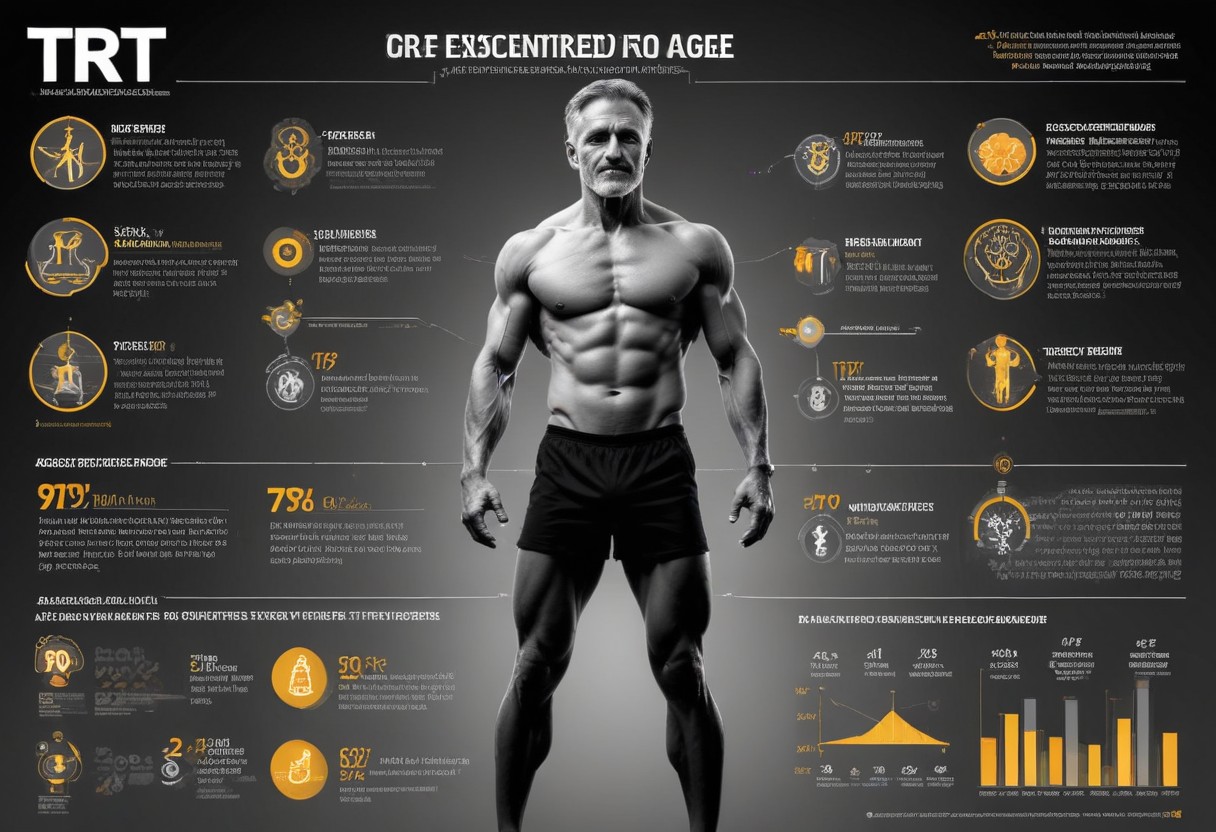In today’s fast-paced world, maintaining optimal health is more important than ever. Men, in particular, are often burdened with the expectations of their careers, family responsibilities, and societal pressures. In the pursuit of success, their health tends to take a backseat. However, it is crucial to understand that true success can only be achieved when physical, mental, and emotional well-being are in harmony.
This is where the concept of mind-body hormones comes into play. Hormones are the chemical messengers in our body that regulate various processes, from metabolism and reproduction to mood and stress response. When these hormones are in balance, men experience improved vitality, increased mental clarity, enhanced libido, and reduced risk of chronic diseases.
Taking a holistic approach to men’s health means addressing the complex interplay between the mind, body, and hormones. It goes beyond simply treating symptoms and focuses on understanding the root causes of imbalance. By considering physical, emotional, and lifestyle factors, such as nutrition, exercise, stress management, and sleep, a holistic approach aims to restore hormone balance and promote overall well-being.
Mind-body practices, such as meditation, mindfulness, and yoga, play a crucial role in this approach. These practices help men connect with their inner selves, reduce stress, and cultivate a deep sense of relaxation and well-being. When combined with hormone-balancing strategies, such as optimizing nutrition, managing stress, and incorporating regular physical activity, men can experience remarkable improvements in their health and quality of life.
Benefits of a Holistic Approach to Men’s Health
Men’s health is a topic that often gets overlooked in today’s society. But taking care of your well-being is crucial, and adopting a holistic approach can guide you towards a healthier and happier life. One such approach gaining popularity is the mind body hormones approach, which combines mental, physical, and hormonal well-being to optimize men’s health.
The mind body hormones approach recognizes that men’s health is influenced by a multitude of factors. It addresses not only physical health but also mental and emotional well-being. By focusing on all aspects of a man’s life, this approach aims to achieve balance and harmony within the body.
This approach emphasizes the importance of hormonal balance in men’s health. Hormones play a vital role in various bodily functions, including maintaining muscle mass, managing stress, regulating libido, and promoting a positive mood. An imbalance in hormones can lead to a range of issues such as fatigue, depression, weight gain, and a decline in sexual function. By adopting a holistic approach and addressing hormonal imbalances, men can experience a significant improvement in their overall health and well-being.
The benefits of a holistic approach to men’s health are numerous. Firstly, it promotes overall well-being by focusing on multiple aspects of a man’s life. This approach encourages men to prioritize self-care, stress management, and a healthy lifestyle, which can lead to increased energy levels, improved mental clarity, and a better sense of fulfillment.
Additionally, a holistic approach to men’s health recognizes that the mind and body are interconnected. By addressing mental and emotional well-being alongside physical health, men can find better ways to manage stress, improve their relationships, and cope with the challenges of everyday life. This can result in reduced anxiety and depression, enhanced resilience, and improved overall mental health.
Furthermore, a holistic approach to men’s health emphasizes prevention rather than just treating symptoms. By identifying and addressing potential health issues before they become severe, men can proactively work towards maintaining their optimal health. Regular exercise, a nutrient-rich diet, and stress reduction techniques are some of the strategies recommended in this approach, helping prevent conditions like heart disease, diabetes, and obesity.
Understanding the Link Between Mind and Body
When it comes to men’s health, it is important to understand that the mind and body are intricately connected, and maintaining a healthy balance between the two is essential for overall well-being. The link between mind and body is further influenced by hormones, which play a crucial role in regulating various bodily functions.
Hormones are chemical messengers that are produced by the endocrine glands and are responsible for controlling vital processes such as metabolism, growth, reproduction, and mood regulation. In men, testosterone is the primary hormone that governs many aspects of their physical and mental health.
A holistic approach to men’s health recognizes the importance of nurturing and maintaining a healthy mind-body connection, as well as harmonizing hormone levels. Stress, poor nutrition, lack of exercise, and certain medical conditions can disrupt this delicate balance, leading to an array of health issues.
One common health challenge that men often face is low testosterone levels. This hormonal imbalance can result in fatigue, decreased libido, muscle loss, and mood swings. While there are medical interventions such as hormone replacement therapy available, adopting a holistic approach can offer additional benefits.
A holistic approach to men’s health focuses on lifestyle modifications that promote overall well-being and hormonal balance. This includes incorporating regular exercise, stress management techniques, and a balanced diet rich in essential nutrients. Additionally, practices like mindfulness meditation, relaxation exercises, and adequate sleep can aid in reducing stress levels, promoting a calm mind, and boosting testosterone production.
Furthermore, engaging in activities that promote mental and emotional well-being, such as hobbies, social interactions, and therapeutic techniques like cognitive-behavioral therapy, can also contribute to a healthy mind-body connection. By addressing the root causes of imbalances, a holistic approach empowers men to take control of their health and achieve long-lasting results.
In conclusion, adopting a holistic approach to men’s health that acknowledges the interconnectedness of the mind, body, and hormones is vital for overall well-being. By nurturing this delicate balance through lifestyle modifications, stress reduction techniques, and maintaining hormonal harmony, men can optimize their health and enjoy a fulfilling life with improved physical and mental vitality.
I. Introduction to Mind Body Hormones
Men’s health is a topic that has gained significant attention in recent years. Beyond the physical manifestations of health, there is an increasing recognition of the role played by mental and emotional factors in overall well-being. This has led to the development of a holistic approach to men’s health that acknowledges the intricate link between the mind, body, and hormones.
Mind Body Hormones is a comprehensive approach that takes into account the interconnectedness of various factors contributing to men’s health. It recognizes that the mind, body, and hormones are all intricately linked and that any disruption in one aspect can have a profound impact on the others.
When it comes to hormones, they play a vital role in regulating a wide range of bodily functions. From reproductive health to mood regulation, hormones serve as the messengers that facilitate communication within the body. Various hormones, such as testosterone, cortisol, and serotonin, are key players in men’s health and can greatly influence their physical and mental well-being.
Moreover, the mind-body connection has been increasingly appreciated as a crucial aspect of overall health. The mind, comprised of thoughts, emotions, and beliefs, has the power to influence the body’s physiology. For example, chronic stress or negative thought patterns can lead to hormonal imbalances and physical symptoms like fatigue, weight gain, and reduced libido.
By adopting a holistic approach to men’s health, the Mind Body Hormones concept seeks to address imbalances by considering both physical and mental factors. This approach aims to optimize hormonal health by addressing the root causes rather than just treating the symptoms. It focuses on lifestyle modifications, stress management techniques, and mindful practices to restore balance in the mind and body.
In conclusion, Mind Body Hormones offers a holistic approach to men’s health that recognizes the interconnectedness of the mind, body, and hormones. By addressing both physical and mental factors, this approach aims to optimize hormone balance for overall well-being. By embracing this comprehensive approach, men can enhance their health, vitality, and overall quality of life.
II. Understanding the Role of Hormones in Men’s Health
Hormones play a crucial role in the overall health and well-being of men. They are chemical messengers produced by various glands in the body, including the pituitary gland, testes, and adrenal glands. These hormones control numerous bodily functions, including metabolism, sexual function, mood regulation, muscle growth, and more.
One of the most well-known male hormones is testosterone. It is responsible for the development of male sexual characteristics, such as facial hair, muscle mass, and deepening of the voice. Testosterone also plays a significant role in maintaining bone density and red blood cell production. However, as men age, testosterone levels tend to decline, leading to various health issues such as decreased libido, muscle weakness, fatigue, and depression.
Another hormone, cortisol, is often referred to as the stress hormone. It helps the body respond to stress by regulating blood pressure, immune function, and glucose metabolism. However, chronic stress can lead to elevated cortisol levels, which can negatively impact men’s health. High cortisol levels have been linked to increased abdominal fat, reduced testosterone production, impaired sleep, and weakened immune function.
Furthermore, hormones like insulin and thyroid hormones also play vital roles in men’s health. Insulin helps regulate blood sugar levels, while thyroid hormones govern metabolism. Any imbalance in these hormones can lead to conditions such as diabetes, weight gain, fatigue, and difficulty losing weight.
Understanding the intricate connection between mind, body, and hormones is essential for achieving holistic men’s health. A comprehensive approach that considers the interplay between these factors can help men effectively manage their hormonal balance and overall well-being. Implementing lifestyle modifications such as regular exercise, stress management techniques, adequate sleep, and a balanced diet can have a profound impact on hormone levels and, in turn, improve overall health.
In conclusion, hormones are crucial for men’s health and play a significant role in various bodily functions. Maintaining a balance of hormones is essential for optimal well-being. Understanding the effects of hormones, such as testosterone, cortisol, insulin, and thyroid hormones, can empower men to take a holistic approach to their health. By making positive lifestyle choices and seeking professional guidance, men can optimize their hormonal balance and enjoy a healthier and fulfilling life.







